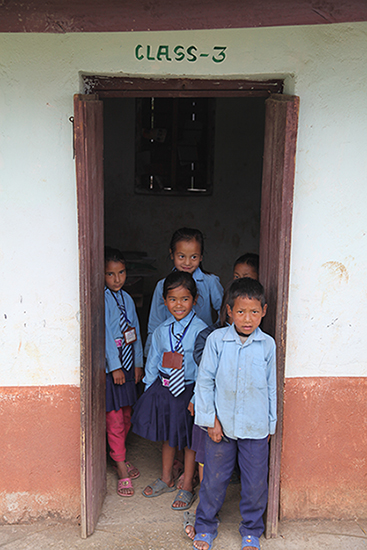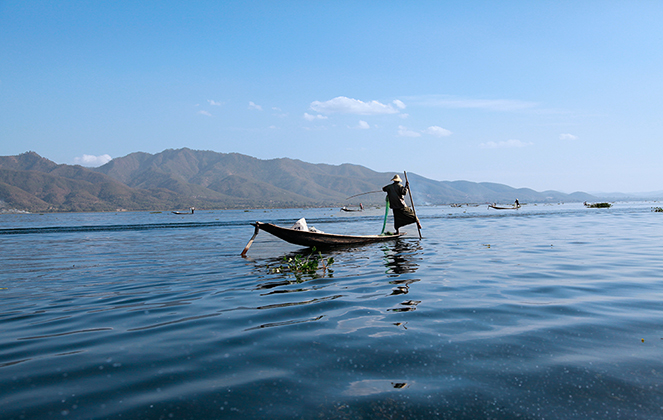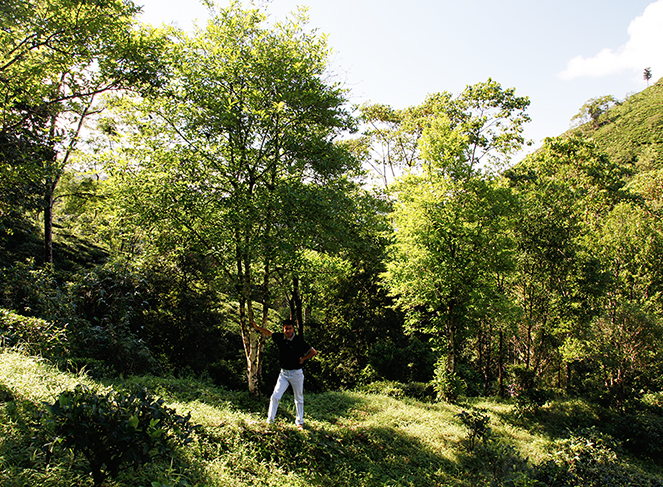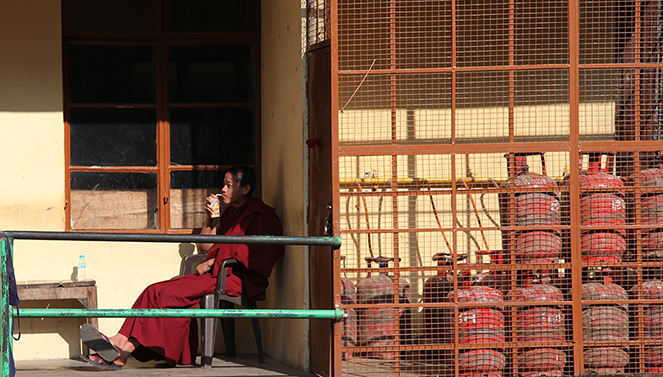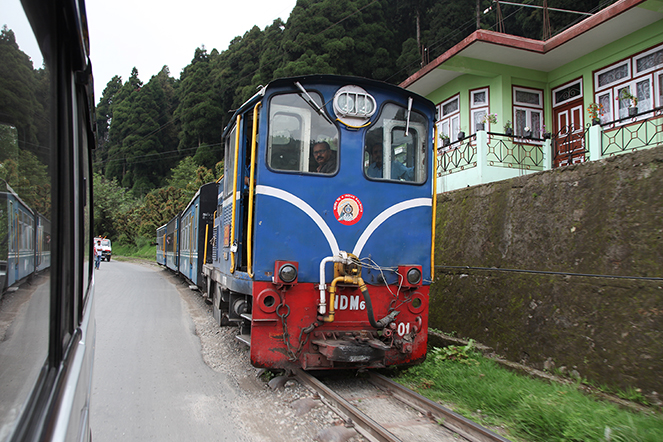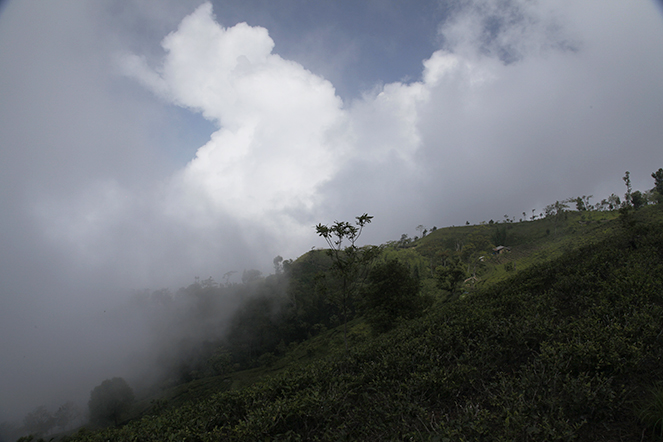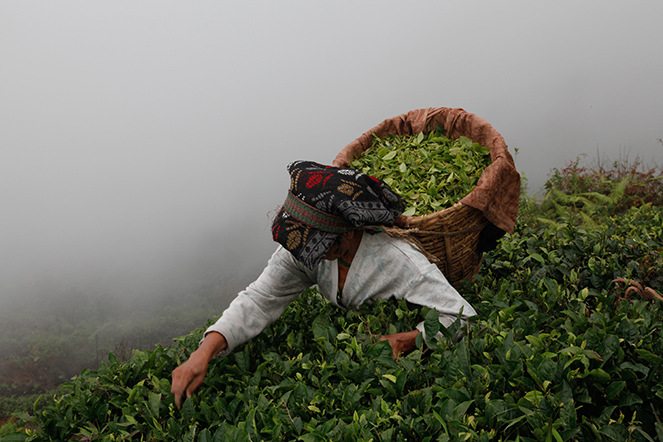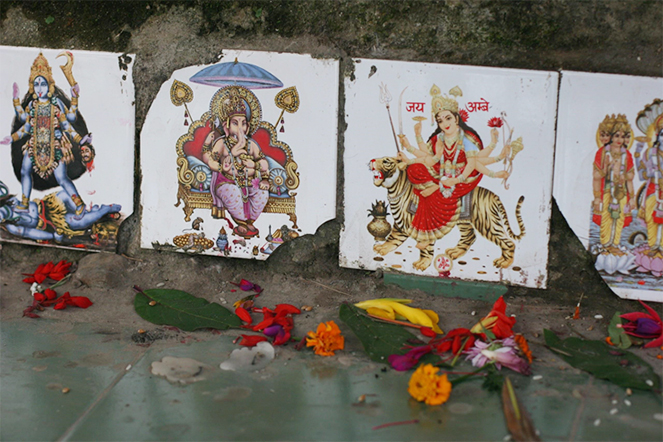When I visit a plantation, when I go to see a producer, I naturally spend time tasting the tea. But I also look at the growing conditions. I want to find out if the tea is produced cleanly, if nature is respected. For me, loving tea also means loving the ground in which it grows. The tea I drink, the tea that does me good – I don’t want it to harm the earth, or those who grow it. That’s why I also visit the clinics, nurseries and, of course, schools.
ARCHIVE FOR 2014
L’appel du Grand Bleu
Vous êtes nombreux en cette période estivale à vous mettre au vert pour quelques semaines. Au vert, je vous y invite tout au long de l’année à travers mes billets, à travers mes photos, à travers ces champs de thé qui ondulent à perte de vue. En cette saison de transhumance, je vous invite cette fois-ci au bleu plutôt qu’au vert, je vous emmène sur les rives de mon lac préféré, le lac Inlé (Myanmar), pour vous souhaiter de belles semaines de vacances !
The tea plant that didn’t stop growing
Due to the harvesting of its leaves, a tea plant does not get bigger; instead its trunk thickens. So a tea field looks more like a bonsai forest. But left unchecked, Camellia Sinensis and Camellia Assamica can grow to a height of several metres. Here is Rudra Sharma, the planter at Poobong in India, in front of one of his wild tea plants.
Turning our backs on danger
On a visit to a Buddhist monastery, I came across this monk sipping a fizzy drink, his back turned on a store of gas bottles. It made me think of the state of the world. We live as if there is no danger, as if it is possible to draw infinitely on the resources of our planet; we let water flow away, we pollute shamelessly, we don’t care about the rubbish contaminating our oceans… We are leaving future generations to deal with the consequences of our actions without considering the risk that one day, our poor, overpopulated, dried out, lifeless planet will explode in our faces.
The Darjeeling Toy Train knows how to take its time
I have written before about the Darjeeling Toy Train, and this is its home. Its adventures continue as I write my blog. Sometimes it crosses my path, at other times it runs alongside me. It moves in its own way and at its own pace. It knows how to take its time. It covers the 80 km that separate Jalpaiguri from Darjeeling in eight hours, at an average speed of 10 km per hour – perfect for those who appreciate life in the slow lane.
Like a Flying Carpet
The Mist Valley plantation takes its name from the lingering mist that envelops the mountains in this region of Nepal. However, from time to time the wind blows away the fog, the clouds dissipate and the sky clears completely. Then this magical landscape is revealed, with the tea fields that appear to hang in the sky, undulating like flying carpets, ready to carry you off over the Himalayas.
Himalayan mist
I am writing to you from paradise,
From a plantation at the end of the world,
Right at the bottom of a valley in Nepal.
A plantation worth finding after hours of walking,
Hidden in the Himalayan mist,
A plantation that makes its tea from the crops of an association of small producers,
A plantation so isolated that the number of visitors can be counted on one hand,
An unknown plantation whose teas are nonetheless worth the detour.
A plantation named Mist Valley.
Special time spent with tea pluckers
The lunch break offers a special opportunity to sit down with the tea pluckers and get to know them. They don’t often get to see buyers, and are even less likely to have a conversation with them. It doesn’t take long before shyness turns into spontaneity. These are special moments which I enjoy very much.
First visit to Poobong
Vertiginous slopes and lingering mists form the scenery of Darjeeling. Out walking, a tea plucker appears in the thick fog. She climbs amongst the tea plants with astonishing agility. Poobong, a long-abandoned and inaccessible plantation, is gradually coming back to life. I am visiting it for the first time.
The frenzied pace of the spring harvests
My selection of first-flush Darjeelings is over, the Nepalese season is in full flow, and then it’s the turn of the new-season China teas, before the first Japanese Ichibancha are ready. Between 1 March and 10 May every year, I can taste more than 100 teas every day, not counting the ones I infuse several times, when I’m deciding between different batches. The peak of this pleasant activity, which I always look forward to, takes place around the end of April. At this time of year, so many samples pile up every morning in the packages sent by express mail from Nepal, India, China and Japan, that I sometimes don’t know which way to turn.

